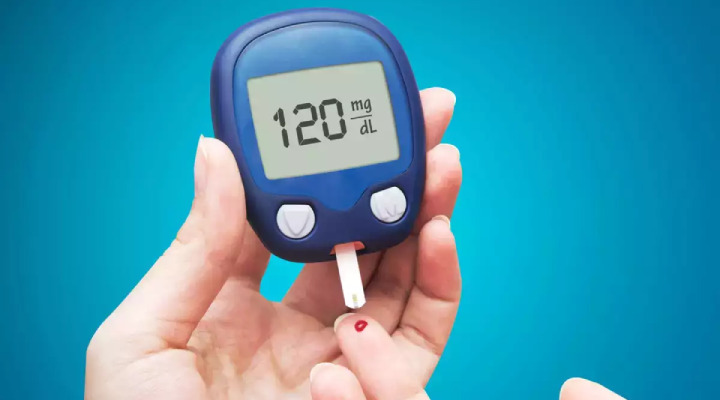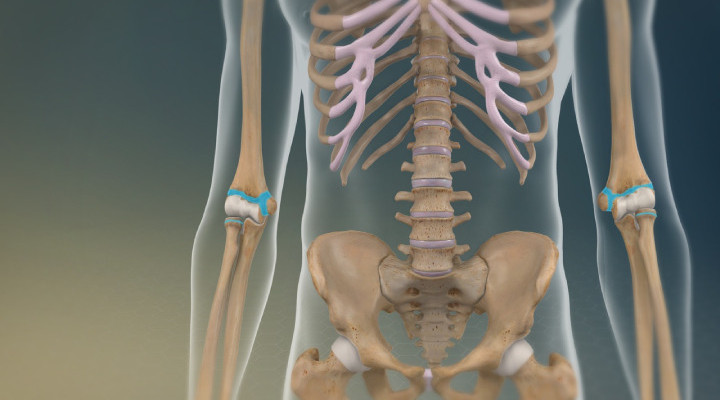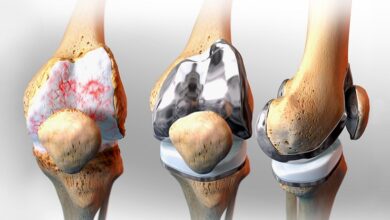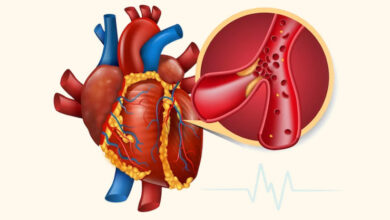
Manganese is an essential mineral that the body needs in tiny amounts. Manganese gives you energy, protects your cells from damage, and strengthens your bones. You must get enough of this mineral to avoid suffering from manganese deficiency. Although manganese deficiency is rare, it is better to know the symptoms of manganese deficiency in the body. We suggest you stay with us until the end of this article.
Is manganese deficiency a severe problem?
Most people get enough manganese from their daily diet. Although manganese deficiency in the body is rare, it can be problematic if it occurs. Manganese deficiency in the body disrupts average growth, reduces fertility, affects the amount of insulin, and causes metabolic problems.
The benefits of manganese for the body
1. Strengthening bone and cartilage growth
Manganese, in combination with calcium, zinc, and copper, helps maintain bone density and reduce the loss of bone tissue.
2. Antioxidant properties and reduction of disease
Manganese is part of the antioxidant enzyme superoxide dismutase (SOD), which is considered the most critical antioxidant in the body. Antioxidants fight free radicals and maintain cellular health. The deficiency of superoxide dismutase enzymes and antioxidants plays a role in heart disease more than cholesterol and triglycerides. For this reason, getting sufficient nutrients such as manganese somewhat prevents these diseases.
3. Help reduce inflammation
Due to its presence in the antioxidant superoxide dismutase, manganese plays a role in reducing inflammation. This enzyme is a therapeutic agent for inflammatory diseases. Also, the combination of manganese with glucosamine and chondroitin reduces osteoarthritis pain. Osteoarthritis is a wear and tear disease that causes cartilage loss and bone pain. In a study, 52% of 93 people with mild osteoarthritis improved after taking manganese, glucosamine, and chondroitin supplements.
4. Insulin production and blood sugar regulation
Manganese plays a vital role in blood sugar regulation. Manganese deficiency in some species causes glucose intolerance, similar to diabetes. Also, blood manganese levels are low in people with diabetes. Of course, the research done in this field is insufficient, and it is still unclear whether the reduction of manganese leads to the development of diabetes or whether diabetes plays a role in the removal of manganese.
On the other hand, manganese is stored in the pancreas, which is the place of insulin production and blood sugar regulation. Therefore, manganese affects the proper secretion of the pancreas and blood sugar stability. On the other hand, people with diabetes have a lower amount of the oxidizing enzyme manganese superoxide dismutase, which may be related to blood sugar problems.
5. Reducing the incidence of epilepsy
Stroke is the leading cause of epilepsy in adults over 35 years old, which occurs due to reduced blood flow to the brain. Manganese is considered a type of vasodilator, which means that by helping to enlarge the veins, it allows enough blood to reach the brain tissue. The proper amount of manganese in the body increases blood flow and reduces the risk of diseases such as stroke.
Part of the body’s manganese is in the brain. According to research, the amount of manganese is lower in people with epilepsy. However, it is still unclear whether epilepsy reduces the amount of manganese or whether manganese deficiency causes epilepsy.
6. Helping the body’s metabolism
Manganese activates many enzymes related to metabolism and plays a vital role in various chemical activities of the body. Manganese helps in the digestion and use of protein and amino acids and the metabolism of cholesterol and carbohydrates. Manganese also helps the body use vitamins such as choline, C (C), and E (E), ensuring proper liver function. Manganese also plays a role as a cofactor or partner in growth, reproduction, energy production, immune response, and regulation of brain activity.
7. Reduction of premenstrual symptoms in combination with calcium
Many women experience various symptoms during their menstrual cycle, such as anxiety, cramping, pain, mood swings, and even depression. According to new research, combining manganese and calcium somewhat inhibits premenstrual symptoms. A small study found that people with low manganese in their blood have more pain and premenstrual symptoms, regardless of how much calcium is in their blood.
8. Protecting the brain from free radicals and improving brain function
Manganese is essential for brain function and is commonly used to help treat certain brain disorders because manganese is involved in the powerful antioxidant superoxide dismutase and fights free radicals that can damage brain cells. On the other hand, manganese speeds up the transmission of messages by binding to neurotransmitters. As a result, brain function improves.
Although an appropriate amount of manganese is necessary for brain function, excessive consumption of this substance has a negative effect and causes Parkinsonian-like symptoms such as tremors.
9. Maintaining thyroid health
Manganese is an essential cofactor to help enzymes function properly. It also plays a role in the production of thyroxine. Thyroxine is a vital hormone for the normal functioning of the thyroid gland, which is necessary for regulating appetite, metabolism, weight regulation, and organ function. Therefore, manganese deficiency can play a role in reducing thyroid hormones and cause weight gain and hormonal imbalance.
10. Collagen production and wound healing
Minerals such as manganese play a role in the wound healing process. On the other hand, wound healing requires an increase in collagen production. Manganese is necessary for the production of the amino acid proline. This amino acid is essential for collagen formation in human skin cells and wound healing. According to new research, 12 weeks of using manganese, calcium, and zinc ointments on chronic wounds can help heal them. Of course, you should consult a doctor first.
Symptoms of manganese deficiency in the body
Diagnosing manganese deficiency takes work. Since this problem is rare, the symptoms of manganese deficiency in the body are not well known. However, based on limited research, manganese deficiency may be associated with symptoms such as:
- Acne;
- Decreased hair color, especially in men;
- Rapid change of mood and worsening of premenstrual pain in women.
Complications of long-term manganese deficiency are significant, including:
- bone formation problem and skeletal abnormality;
- developmental disorder ;
- Decreased fertility and mental disability.
The presence of manganese is significant for the development and functioning of the brain and nerves.
Manganese deficiency treatment
Fortunately, most of the foods we consume contain manganese, and manganese deficiency is very rare because the possibility of manganese poisoning is greater than manganese deficiency! For this reason, this mineral should not be consumed in excess.
Getting vitamins and minerals from food sources is better than supplements. Of course, in rare and necessary cases, when the amount of a substance in your body is low, you can use a supplement.
Manganese intake
An adult’s daily requirement of manganese is 1.8 to 2.6 mg. The maximum amount of manganese for an adult is 11 mg per day. The amount of manganese required for children varies according to their age. Still, the safe amount for adolescents under 19 is 9 milligrams or less daily.
Manganese is prescribed for treatment to compensate for magnesium deficiency or balance with zinc and copper. It may be taken orally or by injection.
It is better to consult a doctor before taking a manganese supplement because excessive amounts of manganese in the body can be seriously harmful to the body. Also, people with liver or kidney disease should be cautious about consuming manganese.
The best sources of manganese
There are many manganese-rich foods you can add to your diet, including:
- Grains: brown rice (1 cup 2.2 mg Mn), oats and whole-wheat bread (0.7 mg);
- Seafood: fish and shellfish (1 mg of manganese per unit);
- Nuts: hazelnuts and walnuts (1.1 mg of manganese per unit);
- Legumes: soy and lentils;
- Fruits: pineapple and raspberry;
- Vegetables: Cabbage and spinach (half a cup equals 0.8 mg of manganese);
- spice: pepper;
- black tea (0.5 mg manganese);
- Medium potato with skin (0.3 mg Mn).
Manganese deficiency is very rare and does not have specific symptoms. Therefore, you should consult your doctor about the right supplement if needed.
Food recipes containing manganese
Adding manganese-containing materials to your daily food composition is enough to strengthen manganese.
- Lettuce, pineapple, and banana smoothie. You can start your day with this green smoothie without chewing.
- Mediterranean brown rice salad.
- Roasted chickpeas (half a cup equals 0.8 mg Mn) with a bit of olive oil. To roast chickpeas, cook them in the oven for 10 to 15 minutes. Just be careful not to burn the chickpeas.
Abuse of manganese
About 20 mg of manganese is stored in organs such as the liver, kidney, pancreas, and bone tissue. It is doubtful that your manganese levels are higher than average unless certain substances enter your body, including:
- Being in polluted areas and breathing manganese through the air;
- drinking water contaminated with manganese;
- suffering from iron deficiency anemia;
- suffering from chronic liver disease;
- Drug use.
A large amount of manganese in the body affects the central nervous system in the long term and causes different symptoms, including:
- shaking;
- muscle cramp ;
- hearing loss;
- Feeling unstable.
- In the advanced stages of Parkinson’s disease.
you say
How familiar are you with the symptoms of manganese deficiency in the body? You can write about your experience and opinion in the comments section and share this article with your friends through social networks.









